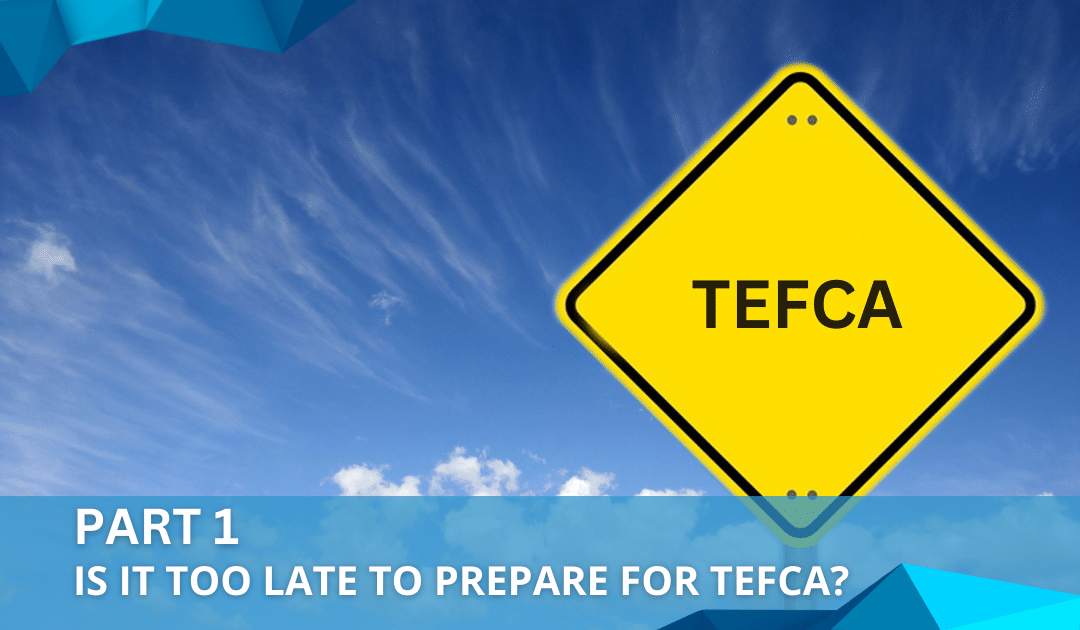The TEFCA roll out continues to roll on. If you have not taken some time recently to understand what changes TEFCA and the QHINs are bringing to nationwide data exchange, here is an opportunity to catch up.
In the first part of this two part blog series, we focus on understanding the current state of TEFCA and QHINs as well as considering where we think nationwide data exchange is going in the future.
Current state of TEFCA and the candidate QHINs
Let’s start by acknowledging that as of the writing of this blog, the ONC is not mandating that healthcare providers or other organizations adopt TEFCA by joining a QHIN once they are in production.
However, they are proposing language that will make participation in a QHIN essentially a “safe harbor” from the data blocking rules (“manner exception”), as long as the data being requested is available via TEFCA based data exchange. We recently wrote a blog on this subject!
In our opinion that step by the ONC will be an important milestone that will likely sway the 40% of folks who haven’t yet made up their minds about TEFCA, to go ahead and join the party.
The candidate QHINs include two of the already existing national data exchange networks: eHealth Exchange and Commonwell Alliance. Carequality, the existing trust framework that is already supporting cross network exchange, is the Regional Coordinating Entity (RCE) “Technical Advisor”. For those who aren’t aware, the current RCE is the Sequoia Project.
This all makes sense. TEFCA has a great chance of early success if it builds on already well established and successful data exchange networks. The Sequoia Project nurtured two of the early data exchange networks.
Right now, the initial six Candidate QHINs are busy working through the RCE’s Conformance Testing Process, which is using testing tools similar to those used to onboard with eHealth Exchange and Carequality. While we are not seeing any official launch dates, we believe that the RCE would like to see production data being exchanged by the end of 2023.
Future state of Nationwide Data Exchange
We do not have a crystal ball, but we do believe that it’s reasonable to draw the following conclusions based on everything we know right now:
- TEFCA will become the primary way that nationwide data exchange occurs for the mandated purposes of use. The two most important in the early days will be Treatment and Request (Patient request for their own data).
- Existing national networks such as eHealth Exchange (eHEX) will increasingly put their focus on their QHIN participants and use cases.
- QHIN Candidates that are EHR based (only Epic currently) will strongly encourage their clients to make TEFCA their preferred way of doing nationwide data exchange. More EHRs are likely to be in the next round of QHIN candidates. We have heard of several that are preparing to apply to be Candidate QHINs.
Check back for part two of this series where we explore some new requirements that will be implemented under TEFCA, and why that should make you worried.
Zen TEFCA resources:
Marilee’s Interoperability Office Hours
Attend our President’s Interoperability Office Hours which are held each Friday from 2 to 3pm Central. Check out Marilee’s Office Hours Collaboration Room to get the Zoom Meeting Link and see what Hot Topics are coming up.
Schedule a Free-15 if you have an urgent question of a more technical nature.
Other TEFCA Readiness Resources Zen recommends:
eHealth Exchange TEFCA Resources
Excellent detailed spreadsheet available for download – look for the “TEFCA Requirements Checklist” in the middle of the page under TEFCA Checklist Header.
The Sequoia Project (Current Recognized Coordinating Entity – RCE) Resources
Get information directly from the source by visiting the RCE’s website. A lot of great information here, from very basic to fairly complex. Here are a few that we highly recommend:
RCE – Summary of Flow Down Provisions
This directly pertains to those aspects of the Common Agreement under TEFCA that flow directly down to all participants in a QHIN
RCE – Standard Operating Procedures (“SOPs”)
The SOPs define “how” data exchange under TEFCA will be done. Look for this section and then click on the + to view the details.
RCE – SOP: Exchange Purposes
An excellent detailed guide outlining the 6 TEFCA exchange use cases (Treatment, Payment, Health Care Operations, Public Health, Government Benefits Determination and Individual Access Services). This document provides details on what is mandatory and what is optional at a participant or sub-participant level. All QHINs must be capable of supporting all six exchange purposes.
Commonwell Alliance – Concise Consolidated CDA Information
A document created by the Carequality and Commonwell Alliance Content Work Groups to address common issues seen with scaling CCDA based data exchange and providing key recommendations.
The QHINs are Coming – Let’s be Ready Together!
Whether you remain skeptical, or you are all in, it’s time to position yourself and your organization for long term success with nationwide healthcare data exchange, whether via TEFCA, your local HIE, or the existing national networks such as Carequality or eHealth Exchange.
Zen Healthcare IT is committed to helping make sure every healthcare organization has easier access to the QHIN of their choice. Subscribe to our newsletter to be sure you stay connected with Zen’s TEFCA related news and resources.







